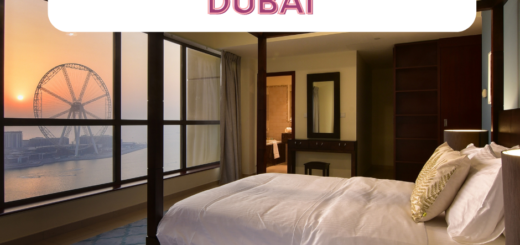What is Home Insurance & How To Choose It in the UAE
The furniture and other belongings within a person’s home are protected from losses and damages by a sort of homeowners insurance known as homeowners’ insurance. In addition to providing liability protection against accidents at home or on the property, homeowners’ insurance.

A sort of property insurance that protects a private residence is called “home insurance,” often known as “homeowner’s insurance”.
It is an insurance policy that combines a variety of personal insurance protections, including liability insurance for accidents that may occur at home or as a result of the homeowner’s negligence within the policy’s service area; failures occurring to one’s home, its contents, loss of use (additional living expenses), or loss of many other personal belongings of the policyholder.
Importance:
The typical consumer’s main asset is their house. Homeowners’ insurance, which is crucial, protects homes and personal possessions. If there is a total loss, insurance may be the main source of funding for reconstruction. Additionally, it offers a liability defence against lawsuits filed over property damage or injuries to third parties. Most mortgage lenders furthermore demand homeowners’ insurance, with the homeowner serving as the mortgagee.
Features of a Home Insurance Policy
So what precisely is covered by a home insurance policy?
- Comprehensive protection against breakages, fires, and accidents.
- Protection from loss brought on by natural disasters like quakes, lightning strikes, dust storms, etc.
- Liability protects the owner and occupant of the insured property against any claims.
- Protection from the tenant’s legal obligations for any harm done to the property of the landlord.
Home Insurance Options

In the UAE, there are three different types of home insurance programmes. To summarize them:
Construction Insurance
As the name implies, this kind of home insurance covers the fundamental framework of the building and covers claims for repairs and rebuilding damages. This covers everything, including the garage, gates, backyards, walls, floors, fixtures and fittings, and even fences. The property damage could have been caused by malicious vandalism, fire, or even natural calamities.
Third-party liability protection against any harm or accident occurring on the premises of the insured property is another characteristic of building insurance. It also covers any potential loss of use, the price of finding substitute housing, and any potential loss of rental income.
Contents Insurance for Homes
The personal items in your home is protected from fire, theft, and accidental damage by home contents insurance. This can include electronics, utensils, furniture, works of art, and paintings. Building Insurance does not provide coverage for these things. They are not a part of the property’s construction; rather, they are extra characteristics. Typically, the owner or tenant will buy and install them.
Insurance for personal belongings
Home Content Insurance does not cover some personal things in the same way that Building Insurance does not cover the contents of the house. These consist of personal accessories, credit cards, jewellery, and apparel. These are protected by personal belongings insurance in the event of loss or theft. A few insurance companies offer plans that include Personal Belongings Insurance coverage in the event of credit/debit card fraud.
Included in a home insurance policy
Natural disasters and unforeseen circumstances
Property damage from natural disasters such as dust storms, lightning strikes, explosions, fires caused by gas leaks, earthquakes, etc. is covered by home insurance plans. Additionally, because unforeseeable disasters like riots and strikes are included, they are also covered.
Alternative Emergency Accommodations
If the insured property is no longer uninhabitable, the insurance company will pay the policyholder for any costs incurred in locating temporary housing.
This only applies, of course, if the harm resulted from one of the events covered by the policy. In most cases, theft, fire, and natural disasters are covered. Self-inflicted harm is not, though.
Additionally, the house must really be uninhabitable. If only a portion of the property is destroyed or uninhabitable, the Emergency Alternative Accommodation will not be offered.
Tenant’s Responsibility
Not everyone opts to reside in the home they have purchased. Many property owners opt to rent out their residences. In situations like these, the question of whether any damage caused to the property by the tenant would be covered by the house insurance policy is of the utmost importance to the property owner.
Yes is the clear-cut response. To the extent specified in the policy, any damage to a rental property will be compensated. This covers the tenant’s potential legal obligations.
House keys stolen
Home insurance will cover lost or stolen house keys. The price of replacing the lock mechanism, house keys, and other items is also covered.
If the owner is away, does home insurance still apply?

If the owner is not at home, it would not make much sense for the homeowner’s insurance to expire. People frequently have to travel for business or pleasure. If the owner is absent, the policy is still in effect, but there is a 60-day tie restriction. You must contact your insurance company and keep them updated if the trip will last more than 60 days.
Legal Responsibility
Many home owners hire house sitters when they go on extended vacations. This is a smart move because the home won’t be fully abandoned and the house sitter can quickly handle any repairs that are required. Intruders and individuals with bad intentions are also discouraged.
However, any loss or damage to third-party people or their personal property while on your insured premises raises legal liability concerns. These harms are also compensated for.
If the owner is home at the time, these liabilities are also covered.
Food Loss from Freezing
Frozen food coverage, which is an extension of the unforeseeable circumstances inclusion, essentially covers the scenario where all of the food in your refrigerator and freezer spoils as a result of a power outage caused by a problem with the public electricity grid.
Takings and Burglaries
Any type of theft or break-in involving the possessions on the insured property is covered by home insurance. In addition, this can be expanded to cover private property like clothing, technology, and jewels. The only prerequisite is that these treasures must be kept hidden and not in plain sight.
Personal Items in Plain View
The home insurance coverage might also cover items that are kept in plain view. A home insurance policy may include coverage for items like garden furniture, gardening equipment, and decorative items.
Moving a House
Your main concern when moving houses is whether your home’s contents will still be protected by home insurance. Yes, if a reputable moving company is used, they will be protected from any harm.
Exclusions in Home Insurance Policies
Every insurer has a unique set of exclusions. Some exclusions depend on each unique circumstance. Following are a some of the most typical exclusions that our study has revealed:
Loss or damage brought on by regular property depreciation or wear and tear. Because property maintenance is the owner’s responsibility and something the insurance provider cannot compel the owner to perform, this disqualifies the insurance company from any claims.
Loss of money A bank transaction can’t verify the actual amount. An unauthenticated loss will not be covered by the insurance carrier.
Electronic equipment destruction or damage as a result of misuse or excessive use. There will be no claim if an electronic equipment or appliance is misused to the point of breakdown. In a similar vein, the insurance provider will not consider any claims if the gadget is used for a purpose for which it was not intended.
The insurance provider will not be liable for any loss or property damage in the case of war or a foreign invasion. It also covers nuclear conflict.
Making a Home Insurance Claim
The knowledge on how to file a claim under a home insurance policy is all well and good, but the key is knowing how to do it when the time comes. While most insurance companies adhere to a similar set of guidelines, some need more paperwork than others. In these circumstances, the provider will let you know the additional documents they want.
Knowing the deadline before filing a claim is crucial. Starting your claims procedure as soon as you can is advised. The majority of insurance companies value claims that are filed within seven to fifteen days of the incident. Any later than the allotted time and your claim is in jeopardy.

You decide how to inform your insurance company. It may be sent via email, SMS, or even regular mail. While most insurance companies adhere to a similar set of guidelines, some need more paperwork than others. In these circumstances, the provider will let you know the additional documents they want.
Most of the time, it doesn’t matter as long as it is inside the allotted time. If there is a certain method of receiving the information that the insurance providers prefer, they will let you know.
Before filing a complaint, file a FIR. This is crucial if your property is the victim of theft, a break-in, or intentional damage.
Take pictures of the damage to prove it. Every digital image has a time stamp. This will support your assertion.
Send a copy of the FIR and the pictures together with your claim to your insurance company.
Additional paperwork will be required, including:
1. The fire department’s report in the event of a fire
2. In the case of a death, a medical official must sign the death certificate, medical reports, and disability certificates.
3. The police investigation’s findings,
4. Invoices of owned items for which you are filing a claim
5. Owned items for which you are filing a claim
6. An estimate of the necessary repair work or, if repairs were made, an original invoice from the repairman
7. If the case went to court, a copy of the court summons and the judgement should be provided.
Benefits of Home Insurance

One of the biggest investments a person can make is a property. You’re looking at a significant sum of money due to escalating real estate costs and the cost of furnishing the home. Why then wouldn’t you insure your largest purchase?
Because it costs money to maintain a home, insurance is crucial. Home insurance covers the home’s structure as well as the contents inside.
The world in which we live is unstable. Everything is unpredictable. Home insurance is required to protect your assets and the contents of your home from any hazard, known or unknown.
Home insurance has considerably lower premium costs when compared to other insurance plans like health and auto. So, in addition to getting to protect your biggest investment, you also get to do it at a cheap rate.
If you travel frequently for work, having home insurance is great. As a result of home insurance covering losses sustained while you are away, it is preferable to hiring a guard or house sitter. When you travel far from home, having home insurance gives you peace of mind.
In the UAE, How to Choose Home Insurance

The UAE, the center of Middle Eastern real estate development, draws several types of home insurance providers. So how do you pick the right one for you?
Compare Coverage and Premiums
Make a list of the features you want your insurance policy to cover as soon as possible. Building insurance is required if you own a home or building, while Home Contents and Personal Belongings insurance is more likely to be chosen by tenants. Depending on your demands, the premiums for each of the three will change.
Compare premium prices and quotes from several insurance companies online once you’ve decided what you want. You shouldn’t go with the first suggestion or sales pitch that is offered to you. Conduct market research and choose the insurance company that provides the best coverage at the most affordable price.
The Reputation of the Insurance Company
You should always study customer reviews to learn more about an insurance company’s market reputation before making any final judgments. Not all businesses are willing to help you with your insurance needs. You must ally yourself with an organization that is honest in its dealings.
Ratio of Claim Settlement
Check the claim settlement ratio of the insurance company as well. Some businesses have a bad reputation for either not considering insurance claim submissions at all or for processing them slowly. Make sure the insurance company you select handles claims quickly.



